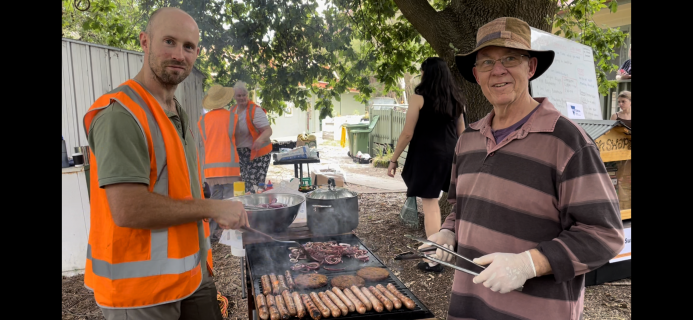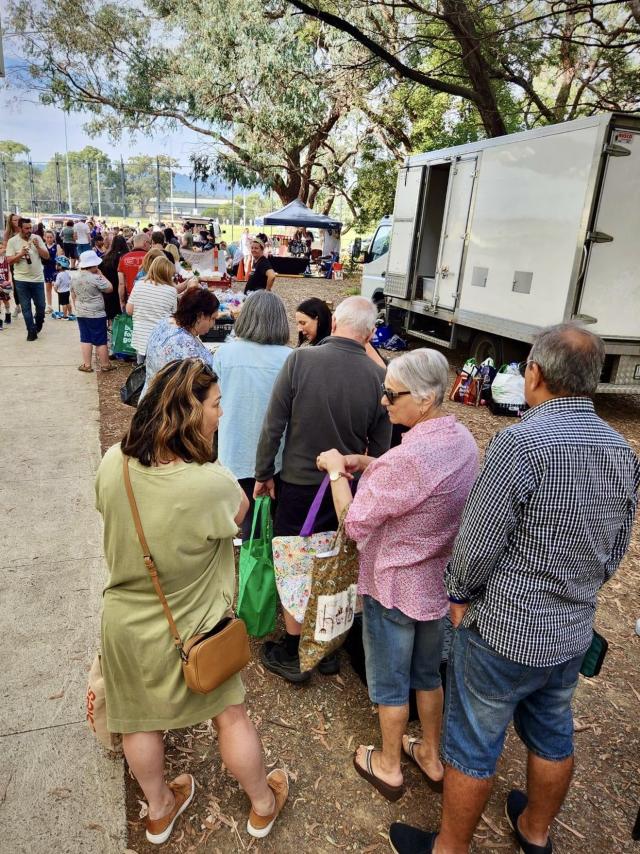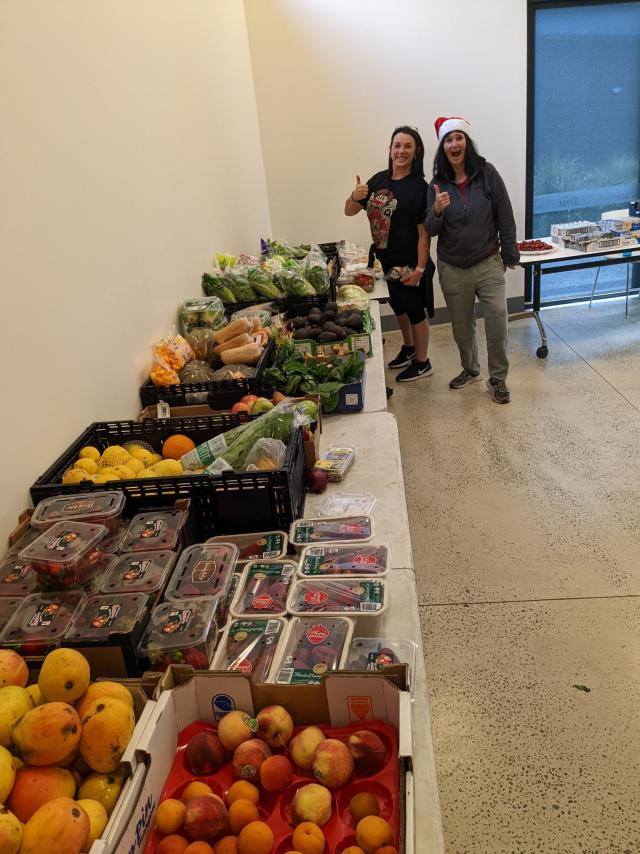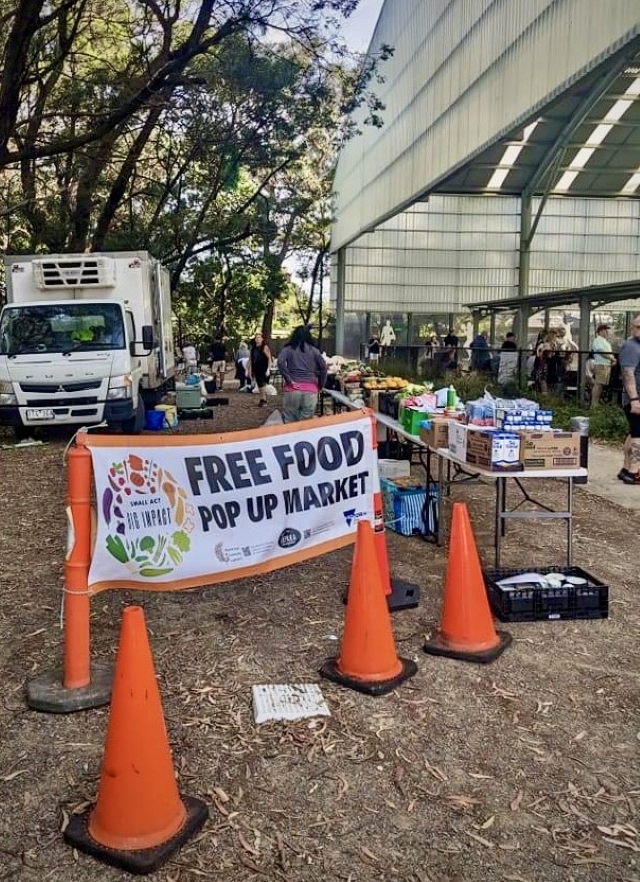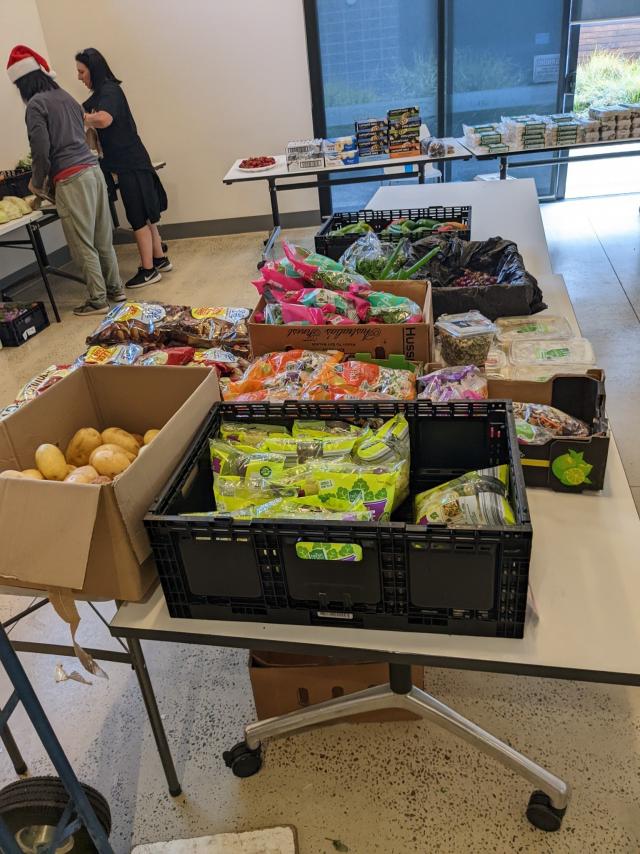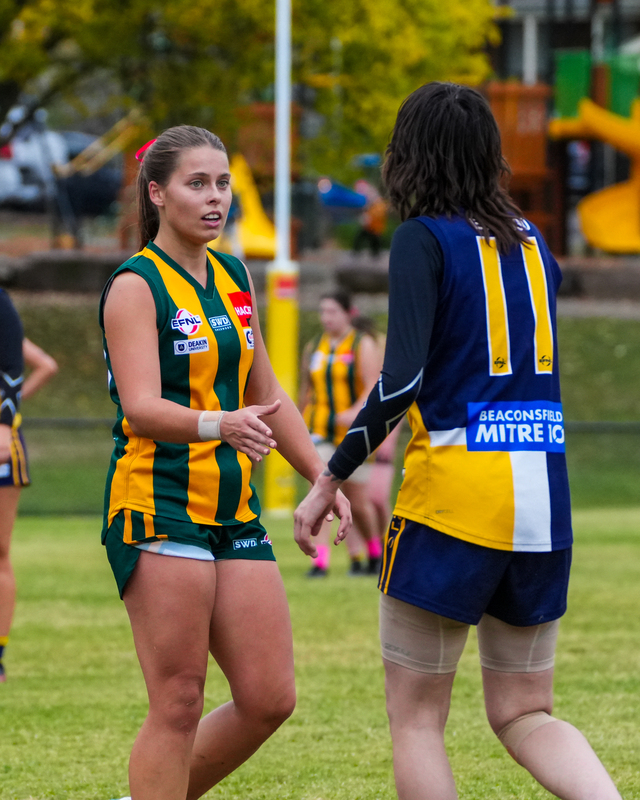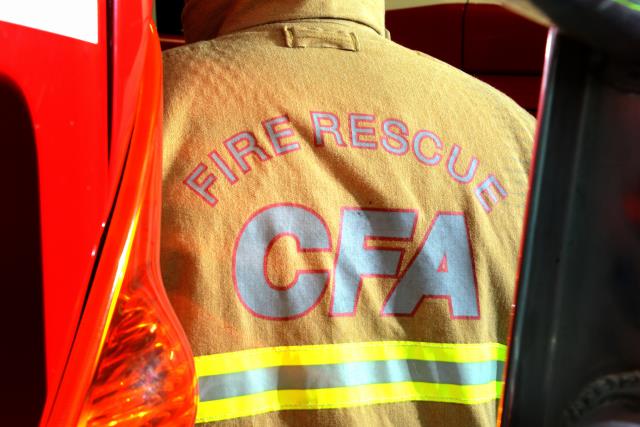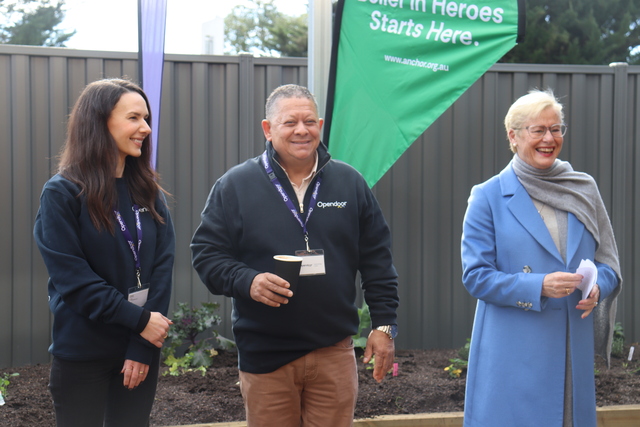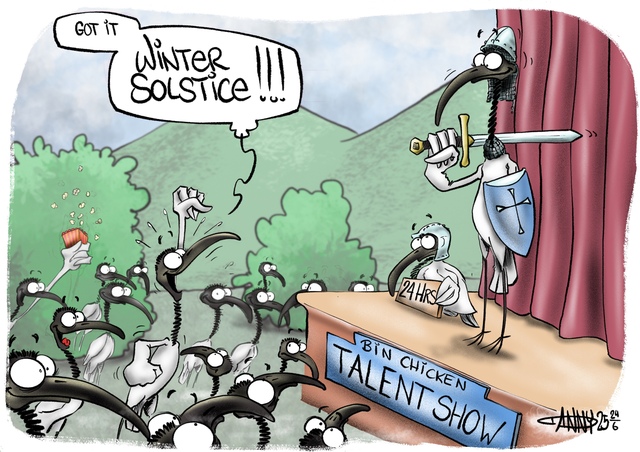Having gotten off to a successful start late last year, Japara Neighbourhood House’s free food markets have only grown in size, with more planned until the end of June.
Receiving a $61,000 Food Relief Market grant from the State government in October to run at least 10 pop up markets, Japara’s board chair Mark Doubleday said the plan was to in fact triple that number.
“We had to run at least 10 pop up food markets over a six month period. We’re actually going to run about 30,” he said.
Not sticking to a traditional food market approach, Japara, in partnership with Montrose Community Cupboard volunteers, has gone out into the community to host these markets where people are already congregating, usually at weekend sporting events.
The most recent was at the launch of the netball season at Pinks Reserve on Saturday 4 March seeing around 500 people pass through, 150 take part in a cooking demonstration and 600 kilograms of food deferred from landfill in a single day.
While primarily about providing food relief, Mr Doubleday said to take the shame or stigma away, Japara has focused the markets through the lens of sustainability.
“People need food, the cost of living is clearly high and people you wouldn’t expect need a bit of help.
“We’ve linked it to the concept of sustainability so if this food wasn’t available and you didn’t take it, it would go to landfill or a farm. So let’s be sustainable.”
Japara’s community engagement coordinator Christie Humble said primarily it’s families, women and older people coming to access the food but because it’s embedded into an already existing event, people are more willing to show vulnerability without feeling embarrassed.
“We can see very clearly it’s not a shameful thing, it’s just the situation we’re currently finding ourselves in with the cost of living and with inequality,” she said.
Sporting environments too, Ms Humble said, bring a whole range of people and spectators who may have not engaged in a free food market had they had to go searching for it themselves.
“Parents will sacrifice self to ensure their children can still participate in some form of sport so we can connect with families but also grandparents come to watch, so we’re accessing a lot of grandparents who realise they didn’t have anything in their fridge.”
Mr Doubleday said Australians can often have the attitude of not wanting to ask for help at risk of being a burden but that in these extenuating circumstances, out of people’s control, there’s no reason not to.
“We’re a proud nation but the concept of helping each other is still very much engrained,” he said.
People who have worked tirelessly to provide for their families and have succeeded may now be experiencing hardship, being unable to put food on the table or afford bills.
“This is a different experience. These are people who are just struggling at the minute to make ends meet, this is middle class Australia, whatever you define that as these days, where it’s just tricky.”
At each pop up market event, chef Nicki demonstrates how to cook a healthy but cost effective meal using as much of the produce from the donated groceries as possible.
“We include a community cooking workshop and it’s basic, wholesome, cheap, high value and we make sure if the donor supermarkets haven’t given everything we know that’s in that cooking workshop, we actually buy the staples,” Mr Doubleday said.
Casting the free food markets through the sustainability lens also allows people to feel as though they are doing something good for the planet, something Japara is committed to on the whole.
“The concept of climate change and its sustainability is big and [most people] can’t engage with closing down a power station that’s burning coal or putting in a wind turbine, that’s big companies, big government but local people still want to do something,” Mr Doubleday said.
“Doing the composting program, growing food, learning about it, minimising waste by being part of a pop up food market program, that’s all local interaction. People feel like they can do something, make a difference with one little footprint.”

